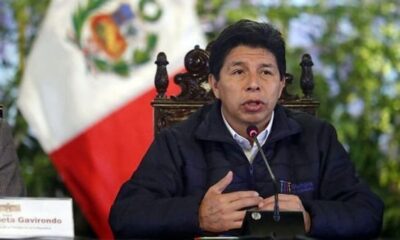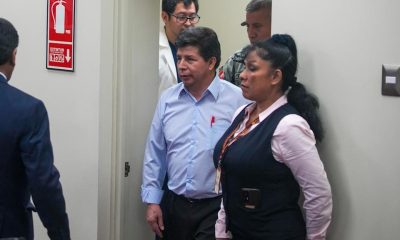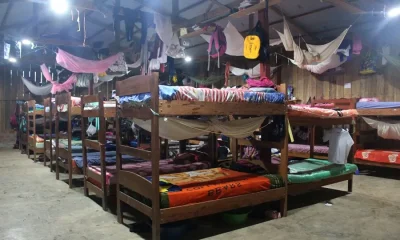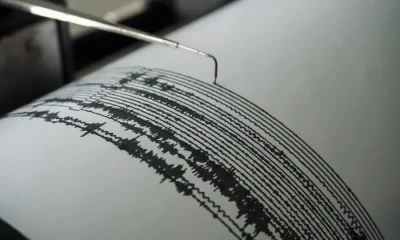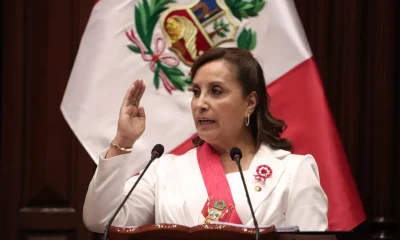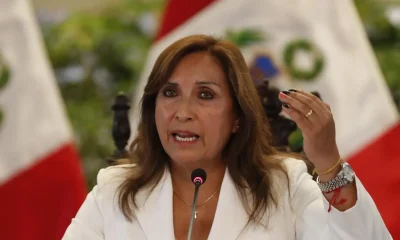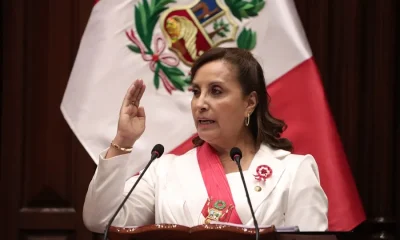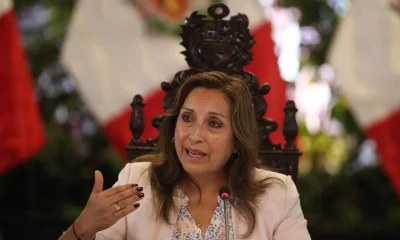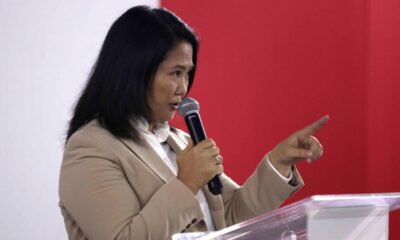International
As Peru unrest ebbs, stranded tourists make way to safety
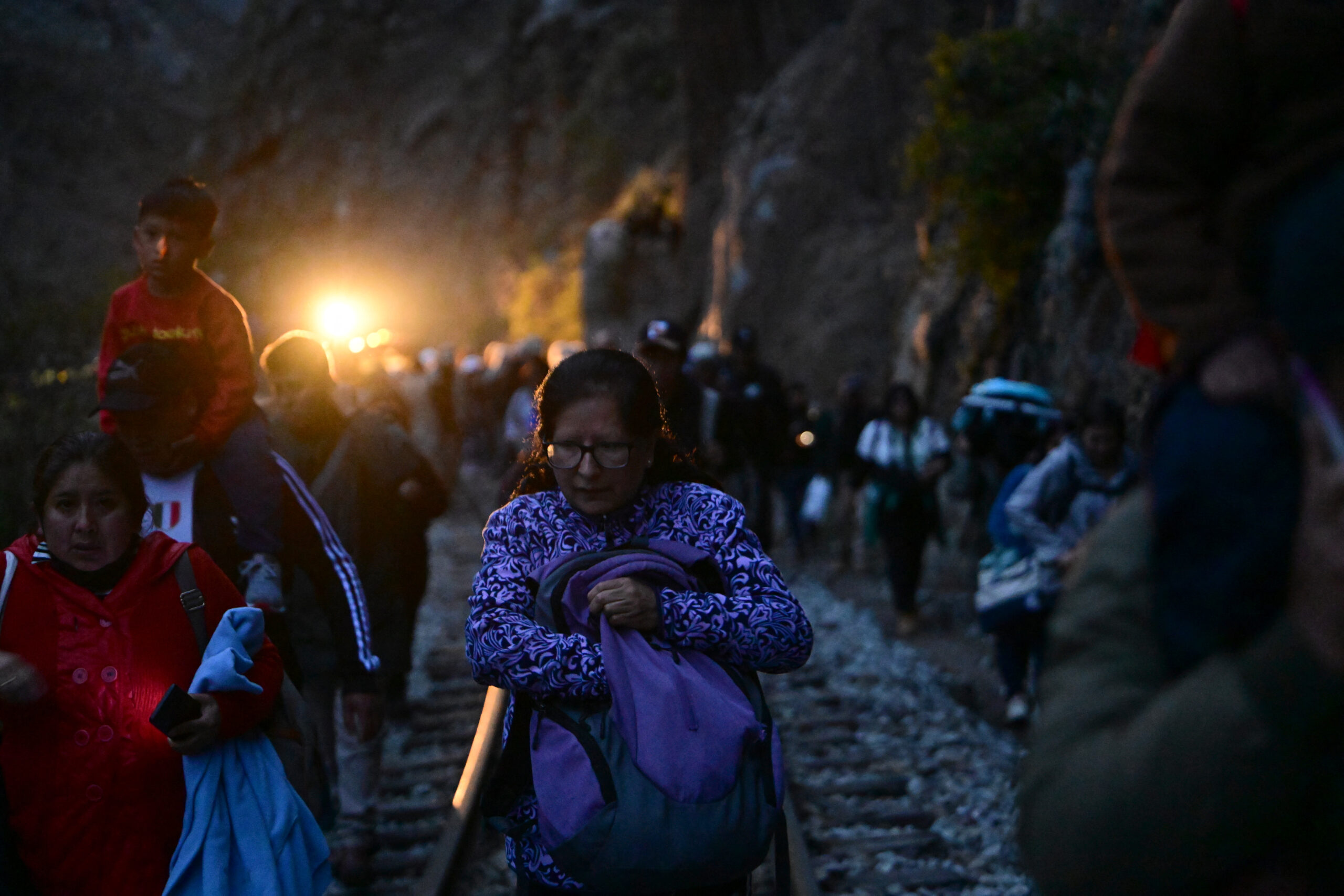
| By AFP | Carlos Mandujano and Moisés Ávila |
Protests dwindled in intensity in Peru on Saturday and thousands of tourists trapped in the interior boarded planes to escape unrest as President Dina Boluarte again vowed that she would not step down.
Some 4,500 tourists, many of them European and North American, rushed to the international airport in Cusco to catch flights after being stranded much of the week by simmering political unrest.
“By Sunday at the latest, all the stranded tourists will leave,” Tourism and Commerce Minister Luis Fernando Helguero told the Andina state news agency.
The state human rights ombudsman reported 70 roadblocks around the South American nation, and the toll from the unrest rose to 19 dead and 569 injured.
But the minister of defense and the head of the armed forces both said protests were diminishing in intensity.
“We have gradually been recovering normality along the roads, at the airports, in the cities. Normality is returning but it is not yet achieved,” said General Manuel Gomez de la Torre, head of the military joint chiefs of staff.
Defense Minister Alberto Otarola cautioned that “organized violent acts” were aimed at damaging airports, highways, natural gas pipelines and hydroelectric installations.
“The trend is downward. But we remain on alert. The situation of violence hasn’t passed and the crisis goes on,” Otarola said.
‘What is solved by my resignation?’
Boluarte, the lawyer who assumed the reins of the country December 7 after leftist President Pedro Castillo tried to dissolve Congress and rule by decree, only to be ousted and thrown in jail, again insisted that she would not bend to protesters and step down.
“What is solved by my resignation? We will be here, firmly, until Congress determines to bring forward the elections,” Boluarte told Peruvians.
On Friday, House speaker Jose Williams said the vote on the election schedule could be revisited during a forthcoming session of Congress.
In her televised address, Boluarte expressed regret for the protests that swelled across the country and the deaths, most of which came in clashes with security forces including the military, under a state of emergency.
If armed troops were on the streets, “it has been to take care of and protect” Peru’s citizens, Boluarte said, adding that the protests were “overflowing” with violent elements that were coordinated and not spontaneous.
“These groups did not emerge overnight. They had tactically organized to block roads,” she said.
Protesters are calling for the release of Castillo, the resignation of Boluarte and closure of Congress, and immediate general elections.
Initially detained for seven days, Castillo was on Thursday ordered to spend 18 months in pretrial detention.
The leftist former schoolteacher stands accused of rebellion and conspiracy, and could be jailed for up to 10 years if found guilty, according to public prosecutor Alcides Diaz.
Boluarte declared a 30-day nationwide state of emergency and said she wanted to bring forward elections as a way to calm the uproar, but Friday’s measure fell short of passage in Congress.
Tourists in limbo
Several airports have been closed, but the international terminal in Cusco, the gateway city to the jewel of Peruvian tourism, the Inca citadel of Machu Picchu, managed to reopen on Friday, allowing for some 4,500 stranded tourists to begin boarding outbound flights.
Cusco’s airport is the third largest in Peru, and armed soldiers were seen Saturday standing guard outside.
Protesters tried to storm the terminal on Monday, and the airport remained closed for nearly four days.
Good news also came Saturday to some 200 tourists stranded in a town in the deep valley below Machu Picchu. They were able to board a train and travel as far as Piscacucho, where a boulder blocked the railway.
The tourists, many from Europe and North America, then walked two kilometers (a little more than a mile) to where waiting vehicles took them on to Cusco, AFP learned.
Rail service to Machu Picchu had been suspended since Tuesday.
‘Criminal investigation’ needed
Some of the greatest bloodshed of the week occurred Thursday at the airport in Ayacucho, where soldiers protecting the terminal shot at protesters.
Soldiers “found themselves surrounded with the masses closing in,” rights ombudsman Eliana Revollar told AFP.
The army says its soldiers would have first raised their weapons and then fired into the air, but Revollar said shots were fired at protesters and an investigation is warranted.
International
New York Announces First 2,000 Seats in Universal 2-K Program
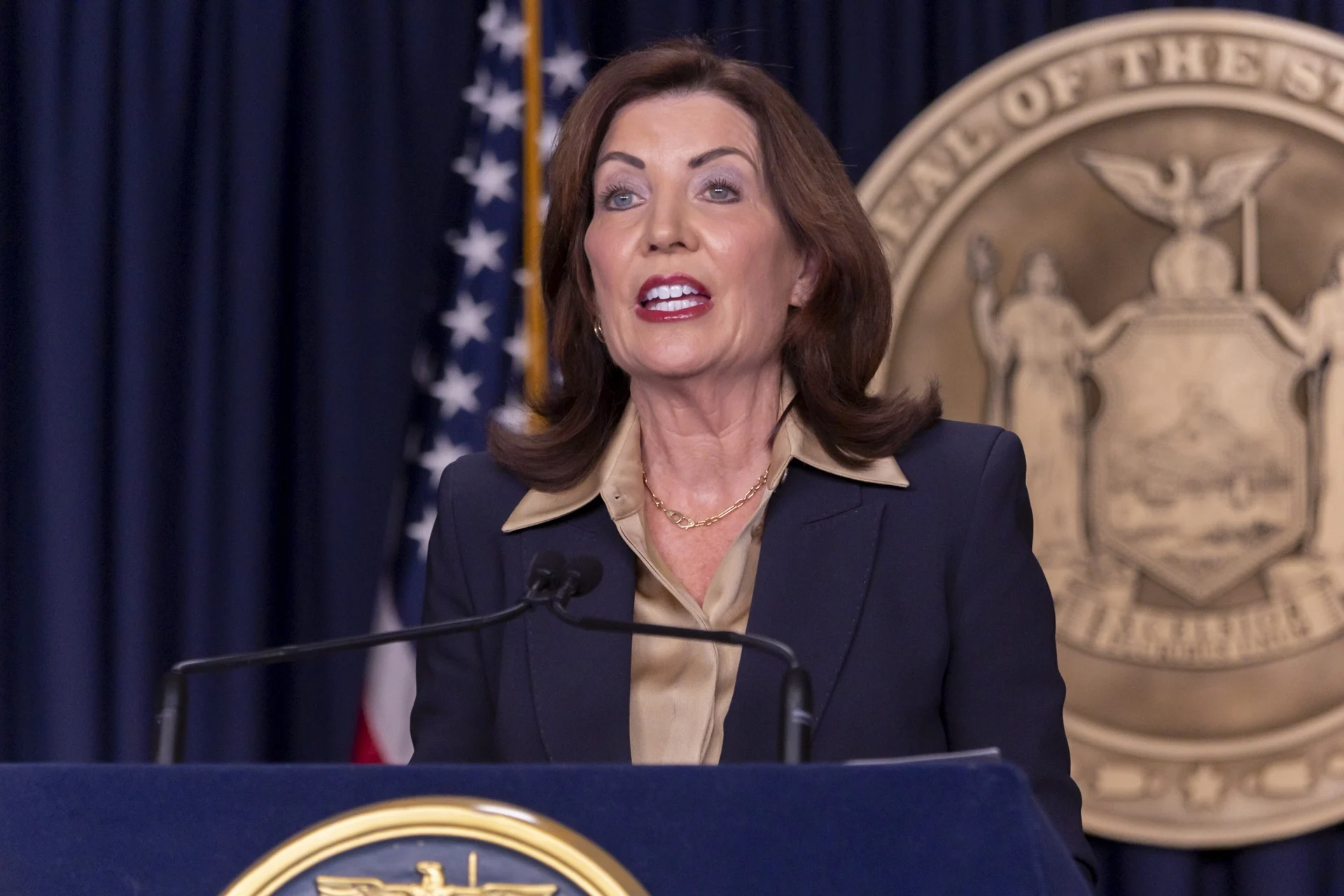
The Governor of New York, Kathy Hochul, and New York City Mayor Zohran Mamdani took another step today in their universal early education agenda by announcing the communities that will have access to the first 2,000 seats in the new 2-K program this fall — an initiative backed by a $73 million investment.
The funding is part of the $1.2 billion package previously unveiled by Hochul to strengthen child care and early childhood education across the city, one of the key campaign promises of the now Social Democratic mayor.
At the time of the announcement, the governor also outlined additional funds to reinforce the existing 3-K early education infrastructure, a program launched under former Mayor Bill de Blasio (2014–2021).
When the 2-K initiative was introduced in January, Mayor Mamdani explained that its first phase would offer 2,000 seats, with the goal of eventually expanding into a universal program — a commitment supported by the governor.
State investment in child care and preschool services is expected to increase to $4.5 billion by fiscal year 2027.
Among the first communities set to benefit from the 2,000 seats are Upper Manhattan and Inwood — areas with large Dominican populations — as well as Fordham and Kingsbridge in the Bronx, a borough with a Latino majority.
In East Brooklyn, Canarsie, Brownsville, and Ocean Hill will also be included. Meanwhile, Ozone Park and the Rockaways are among the neighborhoods that will see the rollout of the 2-K program.
International
Warner Bros. Developing First ‘Game of Thrones’ Movie With ‘Andor’ Writer

Warner Bros. is developing the first feature film based on the hit saga Game of Thrones, with Beau Willimon — screenwriter of Andor — attached to direct, according to a report published Tuesday by Page Six.
The project, currently in early development, will focus on the conquest of King Aegon I Targaryen. A separate television adaptation centered on the same historical storyline within the franchise is also in early stages at HBO.
However, the outlet noted that it remains unclear whether the film will move forward following the recent acquisition of Warner Bros. Discovery by Paramount Skydance.
If the merger is finalized, the movie could potentially be shelved, although that scenario appears unlikely given that the Game of Thrones franchise remains one of HBO’s most valuable and beloved properties.
After six seasons adapting the work of George R. R. Martin, the platform expanded the universe with House of the Dragon, a prequel series set 200 years before the events of Game of Thrones that explores the history of House Targaryen.
International
Spain’s Prime Minister to Address Nation Amid Trump’s Trade Threats

The Prime Minister of Spain, Pedro Sánchez, will deliver an institutional address this Wednesday at the Moncloa Palace regarding the escalating situation in the Middle East and recent threats directed at Spain by U.S. President Donald Trump.
The Spanish government announced that Sánchez will make a statement at 9:00 a.m. local time to outline his position on the latest developments following the U.S. and Israeli attacks on Iran.
Sánchez is expected to reiterate Spain’s reasons for opposing the use of U.S. military bases on Spanish soil in the operation—an action he has already described as being outside international law—while also expressing criticism of the Iranian regime.
Government sources indicated that the address had been planned prior to Trump’s remarks criticizing Spain’s stance. However, following those comments, Sánchez is now also expected to respond directly to the U.S. president’s statements.
Trump has threatened to “cut all trade with Spain” and said he wants “nothing to do” with the country after Madrid refused to authorize the use of the Morón and Rota military bases in southern Spain for operations against Tehran.
The U.S. president also labeled Spain “a terrible NATO partner” and warned that “no one” would tell him he could not use the facilities.
In response, the Spanish government stated that Spain fulfills its commitments to NATO and European defense. It also warned Trump that any review of bilateral trade relations must respect international law and the agreements in place between the European Union and the United States.
-

 International2 days ago
International2 days agoIran Reports 201 Dead, 747 Injured After U.S. and Israeli Strikes
-

 International2 days ago
International2 days agoPope Leo XIV Urges End to ‘Spiral of Violence’ in Middle East
-

 International5 days ago
International5 days agoCocaine Production Surges 34% in 2023 as Market Expands into Africa and Asia
-

 International4 days ago
International4 days agoTrump Floats “Friendly Takeover” of Cuba Amid Rising Tensions
-

 International23 hours ago
International23 hours agoBrazil’s Supreme Court Rejects Bolsonaro’s Bid for House Arrest
-

 International3 days ago
International3 days agoSecurity Council to Hold Emergency Meeting on Middle East Crisis
-

 Sin categoría3 days ago
Sin categoría3 days agoTrump: ‘We Think It’s True’ Amid Claims Iran’s Supreme Leader Was Killed
-

 International4 days ago
International4 days agoArgentina’s Senate Reviews Milei-Backed Labor Overhaul
-

 International5 days ago
International5 days agoFederal Judge Blocks Trump Policy Allowing Deportations to Third Countries
-

 International23 hours ago
International23 hours agoAnti-ICE Billboard Campaign Targets Immigration Spending in 31 U.S. Cities
-

 International5 days ago
International5 days agoClinton Accuses Republican Committee of Using Epstein Case to Shield Trump
-

 International23 hours ago
International23 hours agoTrump Warns of ‘Major Wave’ of Attacks as Iran Conflict Escalates
-

 International23 hours ago
International23 hours agoMexico Calls for Immediate Probe After National Dies in ICE Custody
-

 Central America23 hours ago
Central America23 hours agoPanama Canal Monitoring Trade as Middle East Conflict Disrupts Shipping
-

 International23 hours ago
International23 hours agoBolivia Orders Three Investigations Into Deadly Military Plane Crash
-

 International1 hour ago
International1 hour agoNew York Announces First 2,000 Seats in Universal 2-K Program
-

 International1 hour ago
International1 hour agoSpain’s Prime Minister to Address Nation Amid Trump’s Trade Threats
-

 International1 hour ago
International1 hour agoWarner Bros. Developing First ‘Game of Thrones’ Movie With ‘Andor’ Writer
-

 Central America1 hour ago
Central America1 hour agoGuatemala’s Attorney General Fails in Bid for Top Court Seat Amid Corruption Allegations



























